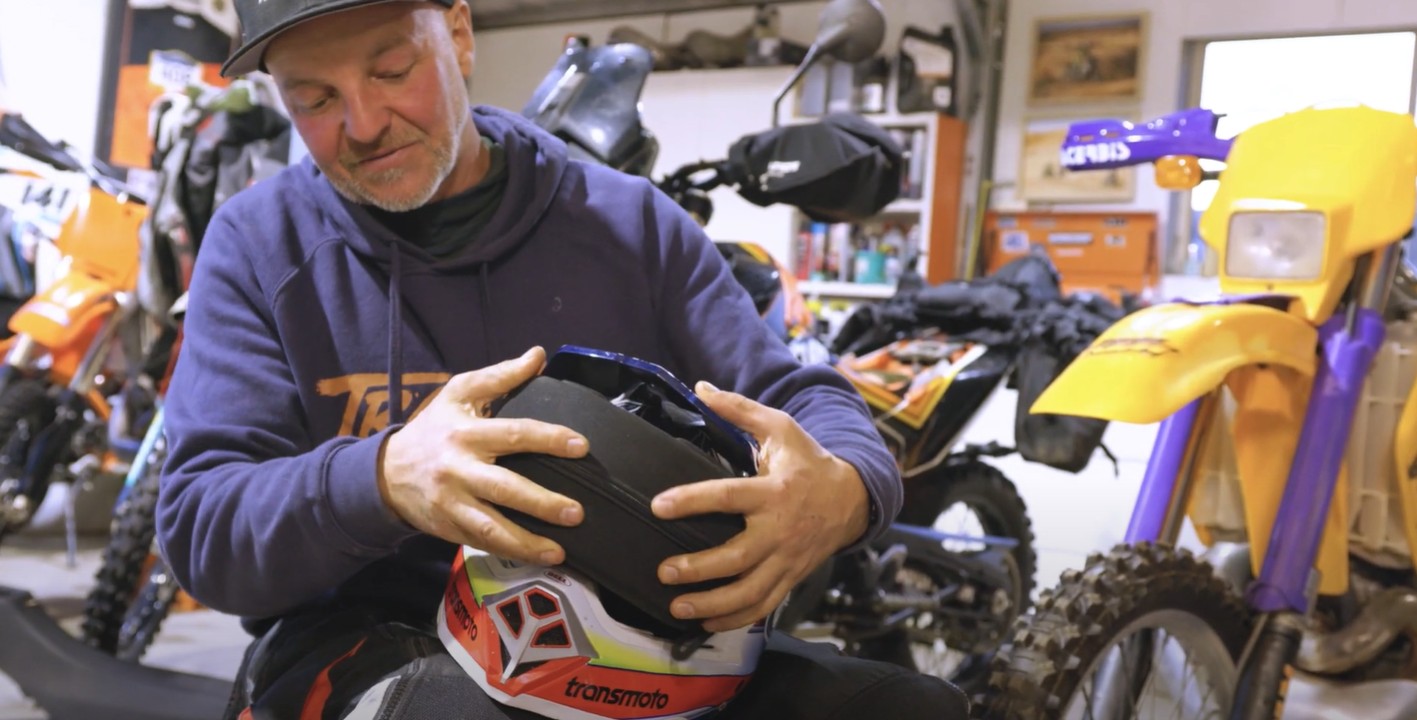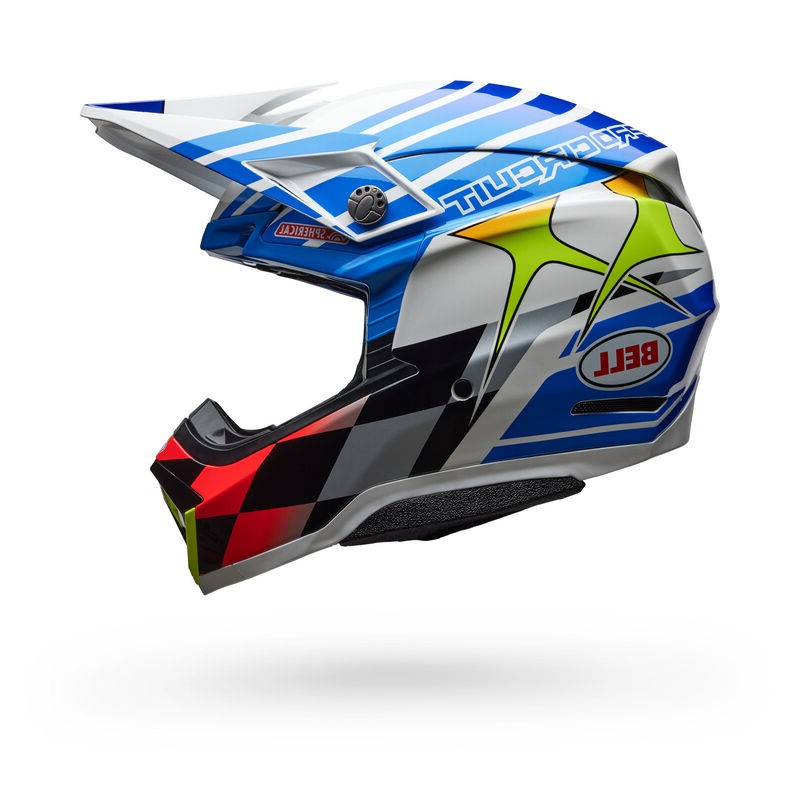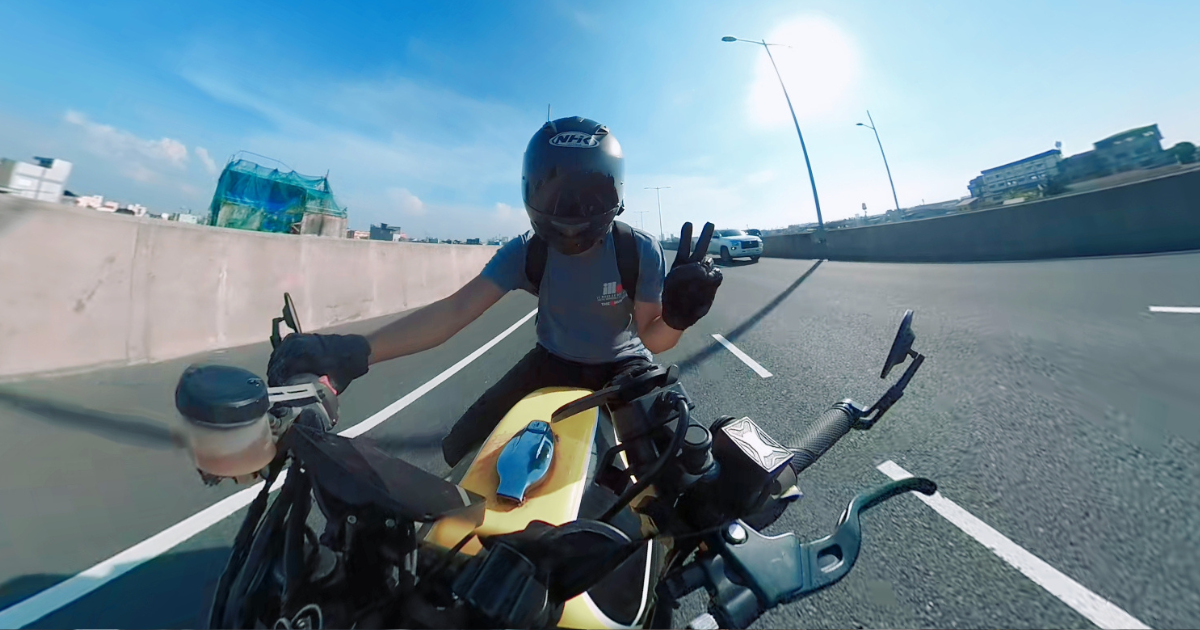
Long-Term Bell Moto-10 Helmet Review & Preventing Visor Breakage
left for contents
Six months ago, we got our hands on the Bell Moto-10 Spherical helmet—Bell’s latest flagship off-road helmet and a serious contender for best-in-class. Known for being a pioneer in helmet technology, Bell pulled out all the stops with this one. At the time, we called it the best off-road helmet on the market.
Now, half a year and hundreds of hours on the bike later, we’re revisiting that bold claim. Has the Moto-10 lived up to the hype?
This article is based on the video by Transmoto.
Still the Best? We Think So
Over the past six months, I’ve run both the Eli Tomac replica and a limited edition Rhythm graphic version of the Moto-10. That’s been my exclusive setup. No switching, no backups—just these two helmets.
Bell’s most advanced dirt bike helmet, the Moto-10 Spherical, delivers top-tier impact protection, airflow, and pro-level comfort for serious riders.
- Spherical Mips® tech for superior safety
- Excellent ventilation system
- Comfortable, cooling liner with easy-to-remove cheek pads
- Expensive
- Slightly heavy
- Snug fit may need break-in
And honestly? We stand by our original statement.
From a protection standpoint, the spherical ball-and-socket tech is incredible. The quality of the finish is second to none, and the airflow is honestly market-leading. Plus, the comfort details like the Jade-infused liner mean I barely need to wash it (not just an excuse—it actually stays fresh). It just doesn’t get that gross, crusty feel, which is a huge bonus on long days.
Pricey But Worth It
Sure, it’s not cheap—expect to pay anywhere from $1200 to $1300 depending on the graphics. But the more time I spend with this helmet, the more it justifies the price tag. It’s not just gear; it’s a legit safety system that delivers top-tier performance every time you put it on.
That Pesky Visor Screw (and Why It’s Actually a Feature)
Let’s talk about something a bit weird: the visor screws. If you’ve used Bell helmets before—Moto-9 Flex, S-Flex, or even the Moto-10—you’ve probably had that moment where you’re cranking down the visor screw thinking, “Have I tightened this enough?”
Turns out, that “looseness” is by design. Behind the screw is a little Tic Tac–sized lug, called a locating pin. The Flying Bridge–style peak isn’t supposed to be rigidly fixed. The idea is that if you take a hit, the lug breaks and the visor pops up, reducing rotational force.

Breaking Without Crashing?
Here’s the problem though. I’ve had a couple of those lugs bust—and not during a crash. I found them broken after traveling, just from the helmet being inside my gear bag. That’s frustrating, especially when you’re careful with your equipment.
After chatting with the team at Bell, we figured out why. Unlike the Moto-9, which uses a plastic insert for the lug, the Moto-10 uses a brass insert. That sharper edge may be what’s causing the plastic to shear even under non-impact pressure.

What It Means for Riders
That means riders are losing visors from luggage damage, not on the bike. And replacement costs? $110 for a new visor—without a spare included anymore. Back when the Moto-10 first launched, you got an extra peak. Now? Not so much. That visor kit also includes a chin piece, which you may not even need. So you’re paying for extras when you just want a fix.
Bell’s Working On It
Good news though: Bell is already on the case. They’re developing updated lugs with more pliability to reduce these breakages. That’s great for future buyers, but not as comforting if you already own one and are on your second (or third) visor.
How to Prevent It Now
So, here’s what I’ve started doing. You know those hard cases for goggles? They happen to fit perfectly under the Moto-10 visor. Now, whenever I travel—locally or internationally—I tuck the case under the peak before zipping up my gear bag.

It only lets the peak move about 20mm if there’s impact from above, which prevents the lugs from breaking. You could use a towel, too, but the hard shell adds another level of protection.
Simple Fix for a Premium Lid
We’re not trying to bag out the Moto-10—it’s an incredible helmet. The Spherical Technology, airflow, comfort liner—it all makes it an elite piece of gear. But this is just one quirk we learned the hard way and wanted to share so others don’t have to deal with the same annoyance.

Final Thoughts
The Bell Moto-10 Spherical is still, in our opinion, the best off-road helmet out there. Nothing comes close when it comes to comfort, airflow, and safety. But if you’re going to invest that kind of money into a helmet, make sure it’s protected even when it’s off your head.
A tiny $2 plastic lug shouldn’t be the reason you’re shelling out another $110. Pack smart, use a buffer under the visor, and ride on knowing your Moto-10 is ready for whatever comes next.
Bell’s most advanced dirt bike helmet, the Moto-10 Spherical, delivers top-tier impact protection, airflow, and pro-level comfort for serious riders.
- Spherical Mips® tech for superior safety
- Excellent ventilation system
- Comfortable, cooling liner with easy-to-remove cheek pads
- Expensive
- Slightly heavy
- Snug fit may need break-in
Related

Carbon Fiber Modular Helmets: Ultimate Flip-Up Lids
Discover carbon fiber modular helmets that deliver flip-up convenience, lightweight strength, and serious protection for every ride.



